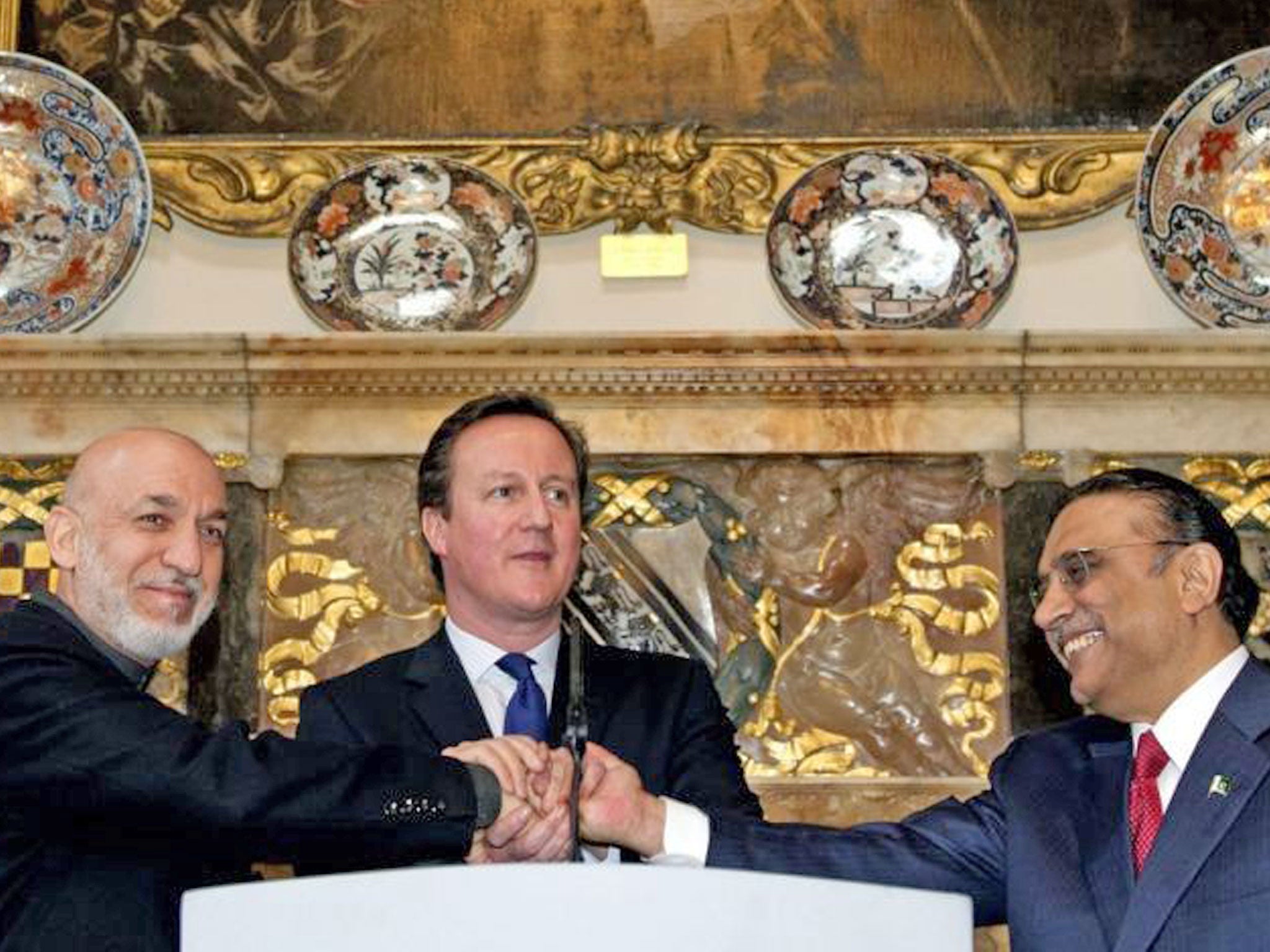Afghanistan peace talks in jeopardy if Taliban refuse to attend

Your support helps us to tell the story
From reproductive rights to climate change to Big Tech, The Independent is on the ground when the story is developing. Whether it's investigating the financials of Elon Musk's pro-Trump PAC or producing our latest documentary, 'The A Word', which shines a light on the American women fighting for reproductive rights, we know how important it is to parse out the facts from the messaging.
At such a critical moment in US history, we need reporters on the ground. Your donation allows us to keep sending journalists to speak to both sides of the story.
The Independent is trusted by Americans across the entire political spectrum. And unlike many other quality news outlets, we choose not to lock Americans out of our reporting and analysis with paywalls. We believe quality journalism should be available to everyone, paid for by those who can afford it.
Your support makes all the difference.Key Afghan peace talks announced by David Cameron, Pakistani President Asif Ali Zardari and Afghan President Hamid Karzai earlier this month were in danger of collapse last night after leading Pakistani clerics told The Independent that they were not willing to take part unless the Taliban was also present.
The leading Pakistani mullahs, or Ulema, are also unhappy with what they see as a crude attempt by the three countries to use the talks as a way of endorsing the Karzai government. Afghanistan has dispatched an emergency delegation to Islamabad in an attempt to persuade the clerics to attend the talks, which were announced with great fanfare by the three leaders at Chequers.
The conference is supposed to take place next month in Kabul and was one of the few concrete steps to come out of the Chequers summit.
Tahir Ashrafi, chairman of the Pakistan Ulema Council, a leading organisation of Pakistani clerics who was seen as a possible leader of the Pakistani side of the conference, said: “How come people can talk to the Taliban all over the world but not in Kabul? We support peace talks. But if we are to discuss peace, then how can you leave out one of the parties to the war?”
The Taliban have indicated their interest in peace negotiations and their representatives have held discussions in Qatar, Germany, France and elsewhere. But it is highly unlikely that they could openly attend a conference in Afghanistan any time soon, and they have come out strongly against the idea of this particular conference.
Mr Ashrafi said today that, after 16 hours of talks with the Afghan side in Islamabad, “nothing firm” was agreed. Pakistan’s three big religious political parties were the obvious choices to go to Kabul with the Ulema Council but didn’t even turn up for the talks.
The conference of the leading mullahs was a key stage in the “Peace Process Roadmap to 2015”, a plan presented in November by the Karzai regime’s High Peace Council. The event had already been postponed from January. That month, Mullah Omar, the leader of the Taliban, issued a statement saying that any religious cleric attending would be “answerable to God”, an apparent threat.
It was reported that Kabul would seek a fatwa (religious decree) against suicide bombing at the meeting – an edict that would be, at least implicitly, critical of the Taliban. The leadership of the Taliban is presumed to be hiding in Pakistan.
At the Chequers summit, the leaders of Pakistan and Afghanistan pledged to aim for a peace deal with the Taliban within six months.
Subscribe to Independent Premium to bookmark this article
Want to bookmark your favourite articles and stories to read or reference later? Start your Independent Premium subscription today.
Join our commenting forum
Join thought-provoking conversations, follow other Independent readers and see their replies
Comments